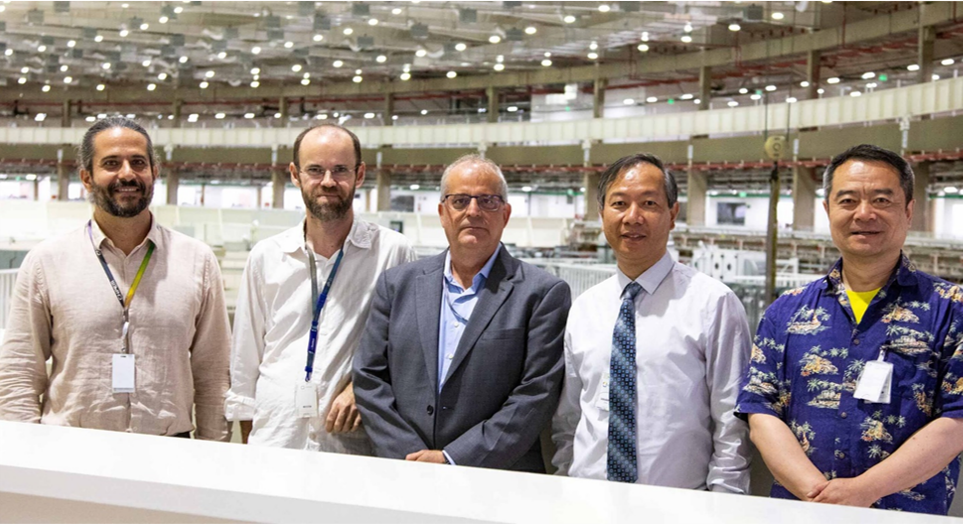HPSTAR and CNPEM (the Brazilian Center for Research in Energy and Materials) have signed a memorandum of understanding for scientific cooperation. This ten-year agreement establishes a collaboration focused on scientific research on high pressure and technological development involving exchanges of research and administrative staff, joint projects, and organization of academic events.
 |  |
The document signed by HPSTAR Director Wenge Yang, CNPEM Director General Antonio José Roque da Silva, and the Brazilian Synchrotron Light National Laboratory (LNLS) Director Harry Westfahl Jr., recognizes the importance of the two institutions in their respective areas and is intended to foster an environment of academic and scientific exchange.
"High pressure science is advancing almost every day. It greatly depends on technology, especially new synchrotron technologies. There are only a few fourth-generation synchrotron light sources in the world, and Brazil has one of the most advanced, which allowed us to make great strides in high pressure research,”said Wenge Yang.
As Harry Westfahl Jr. States, “Sirius is attracting top-level researchers from all over the world. Every time researchers from renowned centers like HPSTAR come here to conduct their experiments, the experience gained from the types of measurements they perform and the challenges they pose for us significantly elevate the level of our experiments. All researchers with extensive experience in science with synchrotron light who come to carry out measurements at Sirius contribute to this progress. Our goal is not just to create the best machines but also to conduct the best science in the world.”
The signing of the memorandum is expected to lead to meetings, seminars, symposia, and other activities to facilitate the exchange of knowledge and findings among researchers.
 |  |
Adapted from CNPEM:https://cnpem.br/en/cnpem-e-hpstar-assinam-memorando-de-entendimento-para-colaboracao-cientifica-entre-brasil-e-china/
